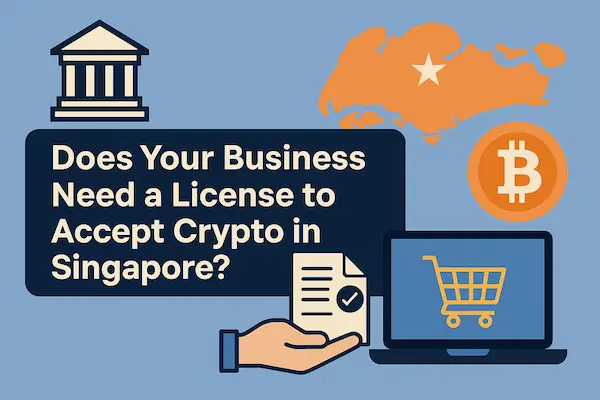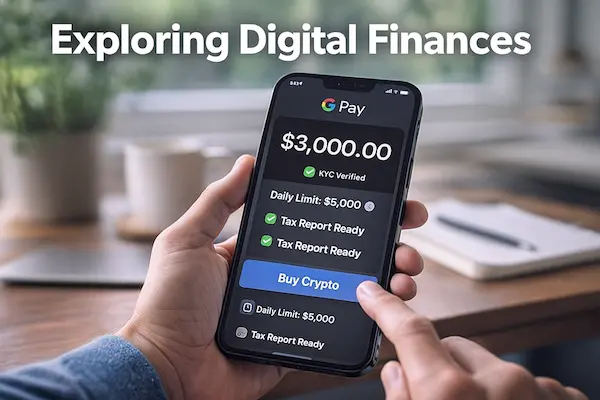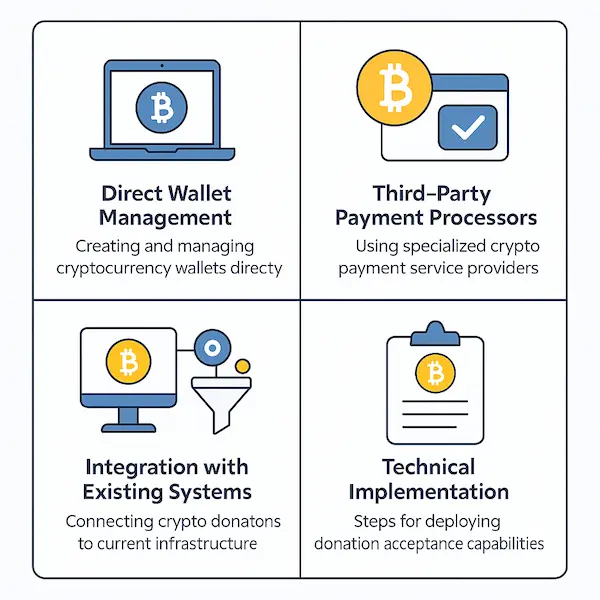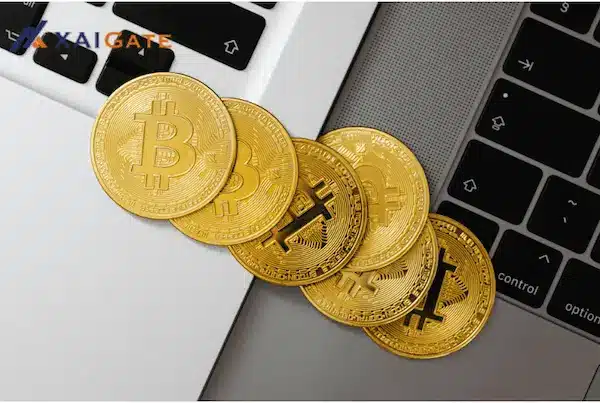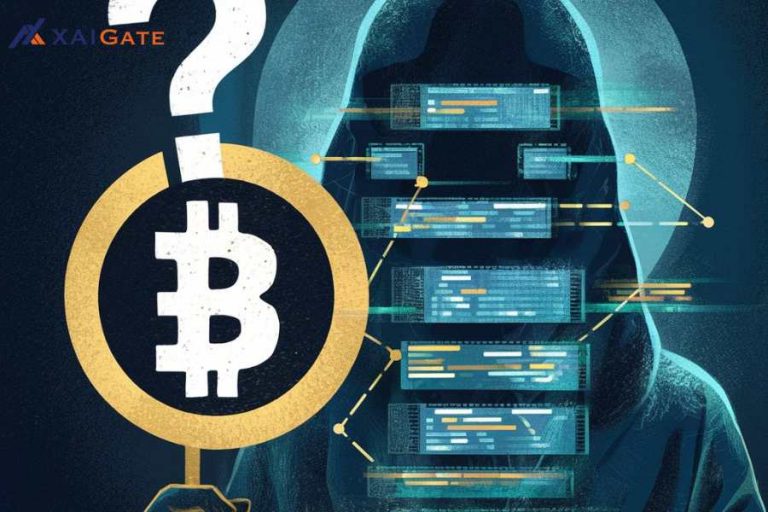As Singapore continues to evolve into one of Asia’s most advanced digital economies, cryptocurrency adoption is increasingly on the rise. From tech startups to eCommerce retailers, many businesses are exploring the possibility of accepting digital currencies like Bitcoin and USDT as payment. Yet, a fundamental legal question arises for many founders and CFOs: Does your business need a license to accept crypto in Singapore?
The short answer is: it depends on your business model. Singapore’s regulatory framework distinguishes between merchants accepting crypto as payment for goods or services and businesses that provide crypto-related financial services to third parties. This article provides an in-depth analysis of Singapore’s crypto regulation environment, focusing specifically on the Payment Services Act (PSA), and clarifies the legal obligations and licensing requirements for businesses that want to accept crypto in Singapore.
Crypto is not legal tender, but using it for payments is legal, provided the business complies with the PSA and other applicable regulations issued by the Monetary Authority of Singapore (MAS).
Contents
- 1 1. The Legal Status of Cryptocurrency in Singapore
- 2 2. Accepting Crypto vs. Providing Crypto Services
- 3 3. Do You Need a License to Accept Crypto in Singapore?
- 4 4. Types of Crypto Licenses Under the Payment Services Act
- 5 5. Licensing Criteria and MAS Requirements
- 6 6. AML, KYC, and the Travel Rule Obligations
- 7 7. Crypto Taxation Rules in Singapore
- 8 8. Best Practices for Accepting Crypto in Singapore
- 9 9. Case Scenarios: When Is a License Required?
- 10 10. Future Trends: What’s Ahead for Crypto Regulation in Singapore?
- 11 FAQs
- 12 Final Thoughts
1. The Legal Status of Cryptocurrency in Singapore
Cryptocurrency is legally recognized in Singapore, but it is important to understand how it is classified. Under the Payment Services Act (PSA), the Monetary Authority of Singapore (MAS) defines digital currencies like Bitcoin, Ethereum, and stablecoins such as USDT and USDC as Digital Payment Tokens (DPTs). These tokens are not legal tender; that title remains solely with the Singapore Dollar (SGD). However, businesses are legally permitted to accept DPTs for payments.
What makes Singapore’s approach unique is that MAS does not attempt to ban or restrict crypto use, but instead enforces a regulatory framework focused on risk mitigation, anti-money laundering (AML), and consumer protection. This makes it possible for businesses to legally accept crypto, provided they do not operate in areas that fall under regulated DPT services.
To summarize: accepting crypto payments is legal in Singapore, but whether a license is required depends entirely on the nature of your involvement with digital assets.
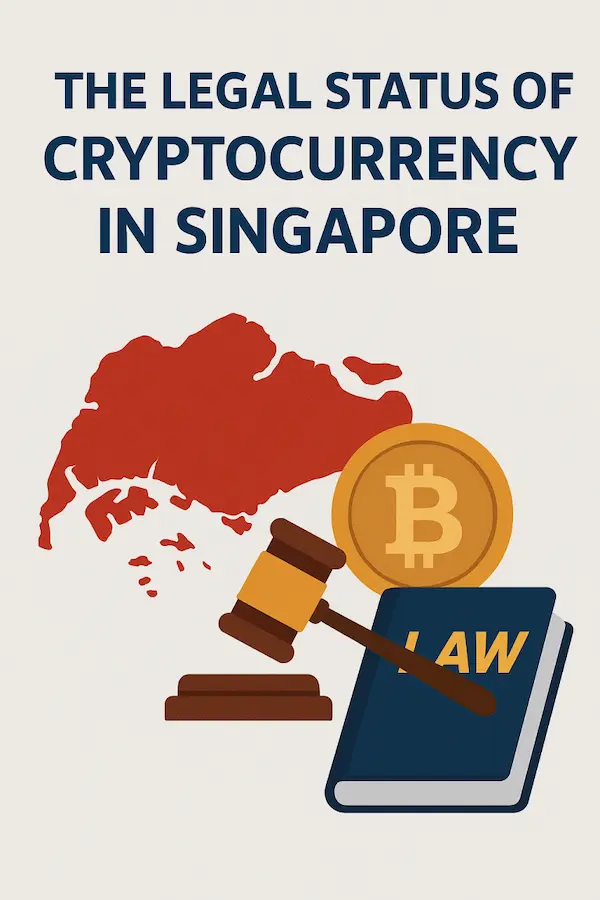
2. Accepting Crypto vs. Providing Crypto Services
To determine whether your business needs a license, it’s vital to distinguish between simply accepting crypto payments and providing crypto-related services. These two activities fall under different regulatory treatments:
- Accepting crypto payments: This involves allowing your customers to pay you in cryptocurrency—either directly into your own wallet or through a third-party processor like XAIGATE. You are not taking custody of anyone else’s crypto nor converting it for others. This is considered a standard commercial activity and does not require a license under the PSA.
- Providing crypto services: This refers to offering services where your business facilitates or manages digital assets for others. Examples include crypto exchanges, custodial wallets, OTC trading platforms, and software that facilitates crypto-fiat conversion. These activities are regulated and require a DPT license.
A useful analogy: accepting crypto in Singapore is like accepting a foreign currency; offering exchange or custody services is akin to operating a money-changing or financial institution.
For businesses exploring crypto adoption in Singapore, compliance with MAS regulations is not optional—it’s essential. To better understand which activities require licensing and how to choose a compliant solution, I recommend reading XAIGATE’s comprehensive guide: Best Cryptocurrency Payment Gateway in Singapore. It breaks down key licensing thresholds, gateway comparisons, and 2026-ready practices.
3. Do You Need a License to Accept Crypto in Singapore?
The Payment Services Act is quite clear on this distinction. If you are a merchant who simply wants to accept crypto as payment, you do not need a license. This holds true whether you receive crypto directly to your own wallet or use a third-party gateway. Your legal obligations in this case are no different than those of someone accepting SGD, USD, or other forms of payment.
However, if your business model involves any of the following, you will likely need a license:
- Operating a crypto exchange platform
- Offering wallet or custodial services
- Facilitating third-party crypto transactions
- Running crypto-to-fiat or fiat-to-crypto conversions on behalf of others
These services are considered Digital Payment Token (DPT) services and fall under MAS’s licensing regime. MAS views such businesses as financial service providers, requiring adherence to capital, compliance, and reporting obligations.
Table 1: Licensed vs. Unlicensed Businesses Accepting Crypto in Singapore
| Criteria | Licensed Entity | Unlicensed Entity |
|---|---|---|
| Legal status | Operates legally under the Payment Services Act (PSA) | Risk of non-compliance, subject to MAS penalties |
| Customer trust | Higher credibility, easier to attract investors & global clients | Lack of transparency, customers may hesitate |
| Partnership opportunities | Eligible to sign official contracts with banks & major partners | Limited access to formal financial services |
| Legal protection | Covered by legal framework, reduced dispute risks | No legal protection, high risk for both business & clients |
| Scalability | Can expand long-term, move into broader FinTech services | Risk of being shut down, no sustainable growth |
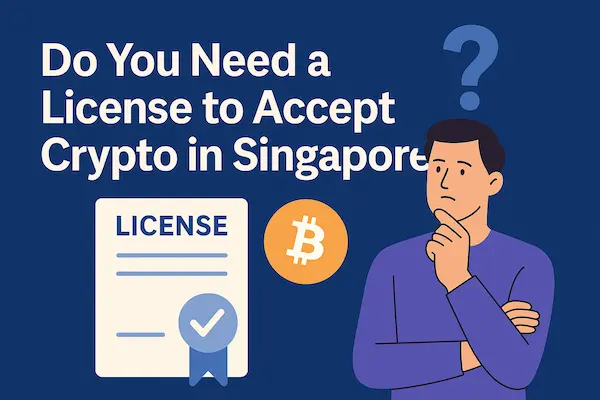
4. Types of Crypto Licenses Under the Payment Services Act
The Payment Services Act defines two main license categories for companies that wish to operate within the digital payments space, Accept Crypto In Singapore:
A. Standard Payment Institution License (SPI)
This license is designed for smaller operations that handle monthly transactions below S$3 million. It comes with lower financial and compliance thresholds, making it suitable for early-stage startups or niche financial services providers. However, holders of this license are still required to implement AML/CFT controls, cybersecurity protocols, and transaction monitoring.
B. Major Payment Institution License (MPI)
This license applies to companies that process more than S$3 million per month. The compliance burden is heavier—requiring stronger internal audits, higher capital reserves, and extensive documentation. MPI holders are typically large exchanges, multi-national fintech firms, or providers dealing with high-volume retail clients.
Both license types cover a range of regulated activities, including:
- Domestic and cross-border money transfers
- Merchant acquisition services
- E-wallet issuance and account services
- DPT-related services such as trading and custody
5. Licensing Criteria and MAS Requirements
Obtaining a DPT license from MAS is no trivial matter. The application process is lengthy, detailed, and requires demonstrable commitment to operational excellence. Businesses Accept Crypto In Singapore must meet several key criteria:
- Incorporation in Singapore: Your business must be legally registered and maintain a physical office presence in Singapore.
- Fit and proper management: MAS evaluates directors and shareholders based on experience, integrity, and financial standing.
- Capital requirements: Depending on the license, minimum paid-up capital may range from S$100,000 to over S$250,000.
- AML/CFT controls: You must have a strong compliance program, including policies for KYC, transaction monitoring, and suspicious activity reporting.
- Technology risk management: A comprehensive framework for protecting against cybersecurity breaches, service outages, and operational failures is mandatory.
MAS reviews applications holistically. Companies that cannot show readiness in all of the above areas will likely be rejected or delayed.
Table 2: Crypto Activities in Singapore & Licensing Requirements
| Crypto Activity | License Required? | Regulating Authority |
|---|---|---|
| Accepting crypto payments as a merchant | No, if only accepting crypto and converting via a payment gateway | Not mandatory, but recommended to partner with a licensed provider |
| Operating a crypto exchange | Yes, license under the Payment Services Act (PSA) | MAS (Monetary Authority of Singapore) |
| Providing custodial wallet services | Yes, due to security & client asset storage | MAS |
| Cross-border remittances using crypto | Yes, classified as money transfer services | MAS |
| Individual mining or staking | No license needed, unless offering staking-as-a-service | Not applicable |

6. AML, KYC, and the Travel Rule Obligations
Whether you are licensed or not, once you begin accepting crypto payments, you must start thinking about compliance. Even if you don’t fall under DPT licensing, you still need to observe best practices around anti-money laundering (AML) and countering the financing of terrorism (CFT).
Key requirements include:
- Know Your Customer (KYC): If receiving large crypto payments in Singapore (above SGD 1,500), merchants should verify customer identities.
- AML monitoring: Regularly screen wallets and transactions for links to illicit activities using blockchain analytics tools.
- Travel Rule compliance: Under MAS Notice PSN02, crypto transactions above a certain threshold must include sender and recipient data that can be shared with regulators.
Using a licensed payment processor like XAIGATE Accept Crypto In Singapore can help your business stay on the right side of these obligations.
7. Crypto Taxation Rules in Singapore
While accepting crypto in Singapore is legal, businesses must also consider the tax implications. The Inland Revenue Authority of Singapore (IRAS) considers cryptocurrency a form of property, not currency. When a business receives crypto in exchange for goods or services, it must report the value of the transaction in SGD.
Here are the main tax rules to keep in mind:
- GST exemption: Since 2020, digital payment tokens are exempt from Goods and Services Tax (GST).
- Income Tax: The fair market value of crypto received must be included in business income.
- Capital gains: If crypto is held as a long-term investment, any sale or disposal may trigger gains tax obligations.
To comply, maintain transaction records, invoice values in SGD, and proper conversion rates at the time of each transaction.
8. Best Practices for Accepting Crypto in Singapore
For businesses looking to accept crypto in Singapore without regulatory issues, following best practices is essential:
- Work with a licensed payment gateway: Choose MAS-regulated providers like XAIGATE to handle crypto processing.
- Document everything: Maintain transaction logs, wallet addresses, payment confirmations, and customer receipts.
- Monitor regulatory changes: MAS regularly updates its rules. Stay informed via their website and consultation papers.
- Train internal teams: Make sure your finance and compliance staff understand crypto risks, tax impacts, and legal boundaries.
- Limit exposure: If concerned about volatility, convert crypto to SGD promptly using gateway features or OTC desks.
By adopting these habits, you reduce operational risks while positioning your business at the forefront of financial innovation.
9. Case Scenarios: When Is a License Required?
Let’s review some common examples:
| Business Activity | License Needed? | Reason |
|---|---|---|
| A local café using XAIGATE to accept Bitcoin | ❌ No | Using a regulated third-party gateway |
| An eCommerce store receiving USDT directly into its wallet | ❌ No | No conversion or custody for others |
| A fintech app that lets users store crypto wallets | ✅ Yes | Providing custodial wallet services |
| A company offering USDT-SGD conversion for third parties | ✅ Yes | Operating a regulated DPT service |
If your activity crosses into custody, exchange, or facilitation for others, you need to prepare for licensing.
10. Future Trends: What’s Ahead for Crypto Regulation in Singapore?
Singapore’s regulatory landscape is proactive and continuously evolving. In the near future, businesses should expect:
- Stablecoin frameworks: MAS is working on clear rules for issuing Singapore-regulated stablecoins.
- NFT and DeFi oversight: As non-fungible tokens and decentralized finance expand, expect new licensing requirements.
- Cybersecurity audits: Businesses may face more frequent reviews of their tech systems.
- Expanded Travel Rule enforcement: Cross-border payments and data reporting will become stricter.
Singapore is not anti-crypto—it is anti-risk. That’s a crucial distinction for businesses building in this space.
The decision to accept crypto in Singapore goes far beyond enabling a new payment option—it’s a step into a regulated digital economy. Businesses must not only evaluate market trends but also align with MAS expectations. For a complete breakdown of what this means in practice, I recommend reading XAIGATE’s expert-level guide: Crypto Payment Solution Singapore.
FAQs
1. Do I need a license to accept crypto payments in Singapore?
Not always. If you are simply accepting crypto as a merchant and converting it into fiat through a payment gateway, you usually do not need a license. However, businesses offering exchange, wallet, or remittance services must be licensed under the Payment Services Act.
2. Who regulates crypto businesses in Singapore?
The Monetary Authority of Singapore (MAS) regulates crypto-related activities under the Payment Services Act (PSA). It sets the licensing requirements for exchanges, custodial wallets, and cross-border payment services.
3. What happens if I accept crypto without a license when it’s required?
Operating without the required license can lead to serious penalties, including fines, legal action, or being banned from offering crypto services in Singapore.
4. Can small businesses accept Bitcoin or USDT without registering?
Yes, small businesses can accept cryptocurrencies like Bitcoin or USDT for payments without a license, provided they do not offer exchange or wallet services. Partnering with a licensed payment gateway is strongly recommended for compliance and customer trust.
5. Is crypto considered legal tender in Singapore?
No. Crypto is not legal tender in Singapore. The Singapore dollar remains the only official currency. Crypto is treated as a digital asset, not as official money.
6. Do I need a license to run a crypto exchange in Singapore?
Yes. All crypto exchanges must be licensed under the Payment Services Act. They must meet strict AML (Anti-Money Laundering) and KYC (Know Your Customer) requirements.
7. What are the benefits of being a licensed crypto business in Singapore?
Licensing builds credibility, enables partnerships with banks and investors, reduces legal risks, and supports long-term growth within Singapore’s regulated financial ecosystem.
8. Can I get in trouble for not following Singapore’s crypto regulations?
Yes. Non-compliance can lead to fines, reputational damage, and even criminal charges. Staying updated with MAS guidelines is essential for any business accepting or dealing with crypto.
Final Thoughts
So, does your business need a license to accept crypto in Singapore?
If you’re simply accepting payments in Bitcoin or stablecoins using a regulated payment gateway, the answer is no. But if your business involves managing crypto for others—through custody, exchange, or wallet services—then the answer is clearly yes.
The key is to:
- Understand your role in the transaction process
- Choose compliant infrastructure providers
- Monitor local laws and tax obligations
- Plan ahead if your business model evolves
Singapore welcomes innovation but demands accountability. By following regulatory guidance, you can confidently and legally accept crypto in Singapore while building trust with your customers and regulators alike.

